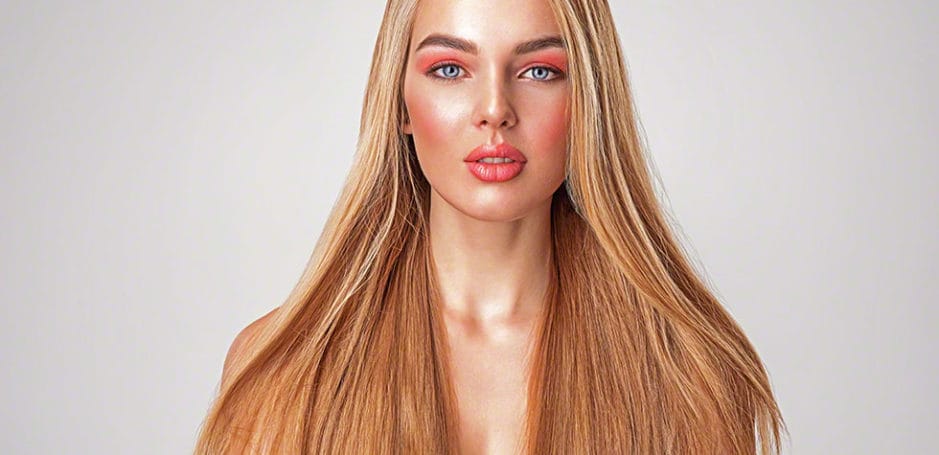A crowning glory for many, our hair is often seen as a reflection of our personality and style. However, like any other aspect of our bodies, our hair too faces its set of challenges. From the stubborn white flakes of dandruff to the frailty of split ends, hair concerns are myriad. While self-care routines can be a boon, sometimes professional intervention from top rated hair salons becomes indispensable to restore hair health.
Dandruff
Dandruff is characterized by the appearance of white flakes on the scalp and hair. These flakes are dead skin cells that the scalp sheds at an increased rate. Several factors, such as an imbalance in the scalp’s natural oil production, yeast overgrowth, or underlying skin conditions like eczema, can trigger dandruff. This concern is not merely aesthetic; dandruff can be itchy and sometimes lead to a tingling sensation.
Solution: Addressing dandruff often requires a two-pronged approach. Over-the-counter medicated shampoos with ingredients like selenium sulfide, zinc pyrithione, or ketoconazole can help control dandruff. Additionally, maintaining scalp hygiene and avoiding excessive use of styling products can prevent dandruff recurrence. If the condition persists, seeking advice from a dermatologist or trichologist is recommended.
Split Ends
The tip of the hair strand, if observed keenly, sometimes bifurcates into two or more strands, commonly referred to as split ends. Prolonged exposure to heat, chemicals, or rough handling can weaken the protective outer layer of the hair shaft, leading to split ends. This condition gives hair a frizzy appearance and can stunt hair growth. You can reduce frizz by getting treatment from a permanent hair straightening salon Rockville.
Solution: Regular trims every 6-8 weeks are the most direct way to get rid of split ends. However, prevention is better than cure. Reducing the use of heat styling tools, using a heat protectant spray when necessary, and moisturizing the hair ends can prevent the occurrence of split ends. Deep conditioning treatments can also fortify the hair, making it less susceptible to splitting.
Breakage
Hair breakage is not the same as hair fall. While hair fall is the shedding of hair from the roots, breakage occurs when hair snaps off at any point along the shaft. Causes for hair breakage are numerous, from aggressive brushing and backcombing to chemical over processing.
Solution: Incorporating a protein treatment can help strengthen hair strands, making them less prone to breakage. Being gentle while detangling, using wide-toothed combs, and avoiding hairstyles that pull at the roots can also reduce breakage. Additionally, a balanced diet rich in vitamins and minerals supports overall hair health, making strands resilient.
The Role of Hair Masks in Maintaining Moisture and Strength
In the world of hair care, where the market is flooded with countless products claiming to restore the vitality of tresses, hair masks have emerged as a popular and effective solution. Going beyond the surface, hair masks dive deep into the hair strand, offering nourishment that regular conditioners often cannot provide. But what role do these intensive treatments play in maintaining moisture and strength in our hair? Let’s explore the world of hair masks and understand their significance.
Understanding the Composition of Hair Masks
Before delving into the benefits, it’s crucial to understand what sets hair masks apart from other hair products. Unlike everyday conditioners that rest on the hair’s surface, hair masks contain a concentrated blend of moisturizing agents, proteins, oils, and vitamins. This rich composition enables them to penetrate the hair shaft more deeply, delivering nourishment from the inside out.
Moisture Retention
Dry, brittle hair is often a result of moisture loss. External factors like heat styling, harsh weather conditions, and chemical treatments strip the hair of its natural oils, leading to dehydration. Here’s where hair masks play a pivotal role.
When applied, hair masks form a protective barrier around the hair shaft, sealing in moisture. The hydrating ingredients in the mask, like aloe vera, honey, or hyaluronic acid, restore the hair’s water balance, making it soft and manageable. Over time, with regular use, hair masks can combat dryness, giving the hair a healthy sheen.
Strength Building
While moisture is essential, strength is equally vital for hair health. Hair that lacks strength is prone to breakage, split ends, and thinning. Hair masks, especially those enriched with proteins, play a crucial role in reinforcing the hair structure.
Keratin, collagen, and silk proteins are common ingredients in hair masks geared towards strength. These proteins fill the gaps in the hair cuticle, making it smooth and resilient. By addressing the core structural issues, hair masks ensure that the hair is not only soft but also strong and less prone to damage.
Tailoring Hair Masks to Individual Needs
While the benefits of hair masks are universally acknowledged, it’s essential to note that not all masks are created equal. Depending on their composition, some masks are more suited for moisture replenishment, while others excel at strength restoration.
For individuals with dry, frizzy hair, masks with oils like argan, coconut, or jojoba can offer profound hydration. On the other hand, for those grappling with breakage or hair thinning, protein-rich masks can be a game-changer.
Frequency and Application
For optimal results, it’s not just about selecting the right mask but also about using it correctly. Most experts recommend using hair masks once a week, but this can vary based on individual needs.
The application process involves shampooing the hair, wringing out excess water, and then generously applying the mask from roots to tips. Depending on the product’s instructions, it should be left on for a specified duration, usually between 10 to 30 minutes, and then rinsed out thoroughly.
In the vast landscape of hair care products, hair masks have proven their mettle by addressing the twin concerns of moisture retention and strength building. They provide an intensive treatment, diving deep into the hair structure and delivering results that are not only immediate but also long-lasting. By understanding their hair type and needs, individuals can harness the power of hair masks, ensuring that their tresses remain a crowning glory, reflecting health, vitality, and beauty.
Conclusion
While it’s heartening to see an increasing number of DIY hair care routines and home remedies available online, it’s vital to understand that not every solution fits all. Hair care is as personal as skincare, with individual needs varying based on several factors. Sometimes, it’s best to leave hair care to the professionals, especially when dealing with persistent or severe issues. Just as one would not hesitate to seek top salons for that perfect cut or color, it’s equally crucial to trust professionals, including hair straightening salons Rockville, when it comes to treatments and services. After all, healthy hair is not just about aesthetics; it’s an integral part of our overall well-being.



